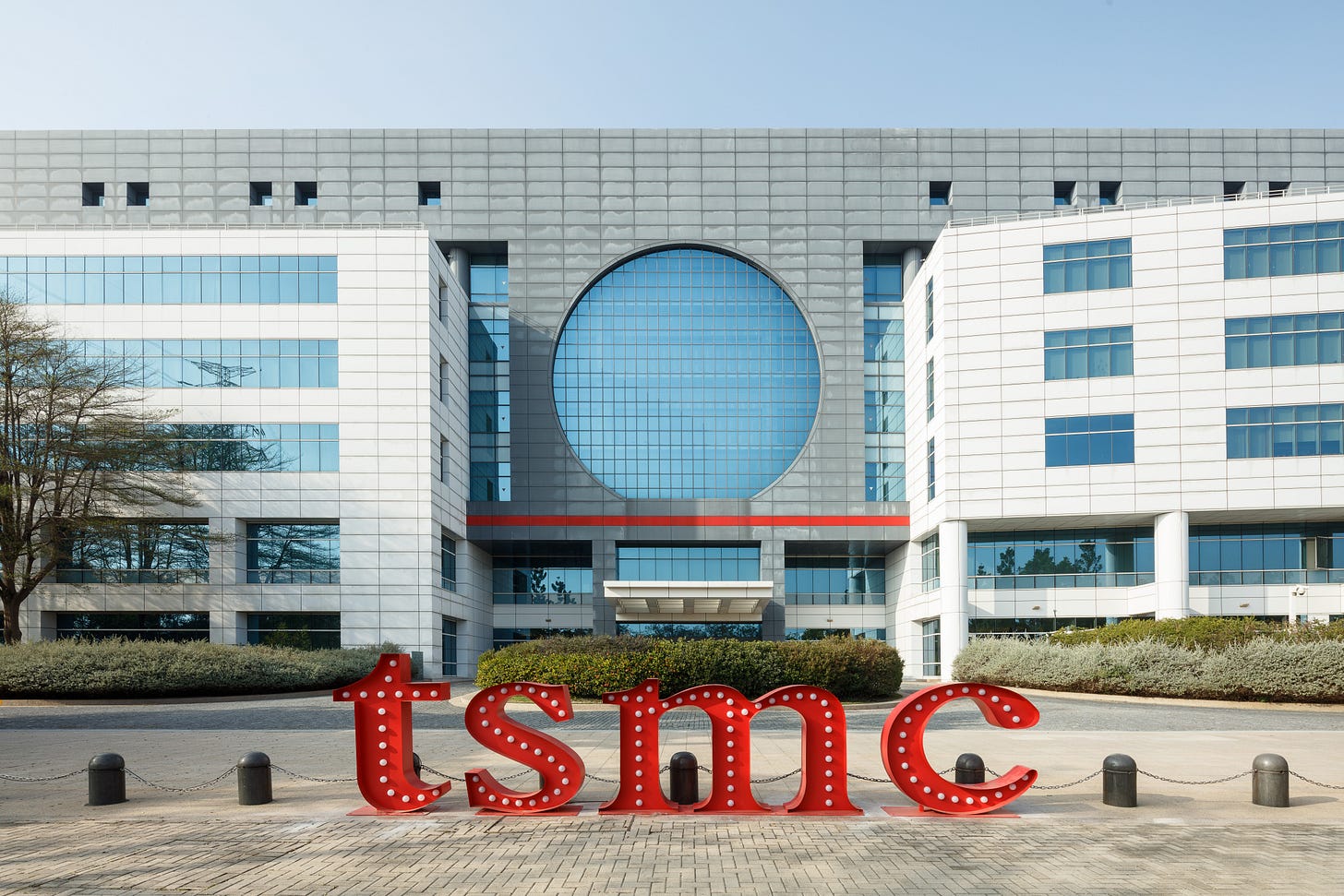TSMC will hold its shareholders’ meeting on June 3 and the Q2 earnings call on July 17. Due to recent exchange rate fluctuations affecting its revenue and gross margin, the market is closely watching the company’s next moves, particularly any changes in wafer foundry pricing. Several related news items today are worth noting:
TSMC's Arizona plant will reach full capacity soon.
All five major clients—Apple, AMD, Qualcomm, Broadcom, and NVIDIA—will have their chip orders manufactured at the Arizona fab this year. Apple remains the largest customer, while NVIDIA’s AI chips will be “Made in the USA” starting by year-end. The first fab of TSMC Arizona is producing 15,000 12-inch wafers per month now and will soon reach 24,000 units, meaning it will reach full capacity soon, according to Nobunaga Chai, senior semiconductor analyst and deputy managing director at Cloud Express.
The industry believes that strong U.S. government support for local manufacturing and geopolitical pressures for offshoring production will help TSMC accelerate the ramp-up of its U.S. fab, ushering in a new wave of growth.
At the same time, wafer pricing is rising in line with process upgrades.
TSMC’s 2nm process is about to enter mass production, with major players like MediaTek, Apple, Qualcomm, Fujitsu, and AMD already committed. Commercial Times and Liberty Times reported that developing a single 2nm chip costs up to USD 725 million, with foundry pricing per wafer reaching USD 30,000, and potentially up to USD 45,000 in the future for the 1.4 nm process. These high costs mean that only top-tier players can afford to compete in the 2nm space and at even more advanced nodes. ZDNet Korea predicts that it takes only four quarters for TSMC’s 2nm node process to run at full capacity.
By the end of this year, TSMC’s 2nm monthly capacity is expected to reach 30,000 wafers.
In 2026, the number of new tape-outs for TSMC’s 2nm process is forecasted to be four times that of the 5nm node, making 2nm the core battleground for advanced processes. Beyond mobile applications, AI accelerators and cloud service providers (CSPs) are expected to adopt the 2nm process for in-house chip designs, including Google’s 8th-gen TPU, AWS’s Trainium 4, and Microsoft’s Maia 300.
The supply chain reveals that the 2nm process involves over 2,000 steps,
requiring extremely advanced process control and technological know-how. TSMC has already established an irreplaceable technical moat. Over the next five years, the AI accelerator segment is expected to grow at a CAGR of nearly 45%, providing strong revenue momentum for TSMC.
Meanwhile, for the China market, NVIDIA is developing a new AI chip, the B30, which are, according to rumors, Blackwell architecture chips that do not use HBM (high-bandwidth memory) or TSMC’s advanced packaging, priced around USD 6,500 to 8,000 per unit, as a response to U.S.-China tech restrictions. More than one million units are expected to be shipped within the year, according to The Information. It will be based on Nvidia's RTX Pro 6000D, a server-class graphics processor, and will utilize conventional GDDR7 memory, according to Reuters, citing two sources. And who will be manufacturing the 1 million units of B30 for NVIDIA? According to Wealth Express, TSMC will produce them.
Overall, TSMC is riding the wave of AI and advanced processes.
Not only does it maintain technological leadership, but its client base and capacity expansion are also progressing robustly, signaling a new phase of rapid growth in the coming years.
Morgan Stanley reaffirms its “Overweight” rating on TSMC,
emphasizing that TSMC remains its top pick among Greater China semiconductor stocks. The report highlights three key figures to watch:
2026 CoWoS capacity plans: Expected to be announced in early July, this will be a key indicator for demand in cloud AI chips such as GPUs and ASICs.
AI GPU shipments: If NVIDIA ships 10,000 units of its NVL 72 server in Q3, it could ease inventory pressure for its Blackwell chips.
Guidance in the July 17 earnings call: Full-year USD revenue is expected to grow 25–30%, though a stronger New Taiwan Dollar may impact gross margins.
Morgan Stanley believes that of the original three major concerns—Intel’s joint venture and AI demand—two have largely subsided. If U.S.-China tariff issues remain under control, TSMC’s valuation could be revised upward, and wafer pricing at the U.S. fab may rise by more than 10% to offset cost increases.
Support TechSoda to support your success!

